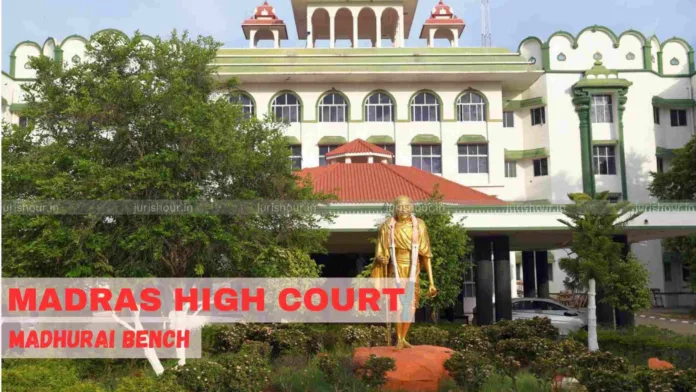The Madurai Bench of the Madras High Court has upheld Tamil Nadu Mercantile Bank’s (TMB) decision to classify a borrower’s loan account as “fraudulent,” rejecting arguments that the borrower was entitled to relief under the Ministry of MSME’s rehabilitation framework.
The bench of Justice C. Saravanan dismissed the writ petition challenging the bank’s April 2025 order, ruling that the classification was in line with the Reserve Bank of India’s July 2024 circular on fraud prevention, detection, and reporting.
The borrower runs a cashew nut processing unit in Kanyakumari. It argued that its business suffered major setbacks due to the imposition of customs duties, demonetization in 2016, and global market resistance, which led to financial losses and made it impossible to repay loans taken from TMB.
The petitioner further contended that the bank wrongly declared the account as a Non-Performing Asset (NPA) and invoked the SARFAESI Act, 2002 without following the mandatory MSME framework. The MSME notification dated May 29, 2015 (S.O.1432(E)) requires banks to first attempt corrective action plans, including rehabilitation or restructuring of loans, through a creditors’ committee before proceeding against an MSME. Instead of following this process, the bank went ahead with asset securitization and fraud classification, which the petitioner claimed was arbitrary and illegal.
The bank argued that the borrower had accumulated dues of over ₹18.65 crore, and the account had been declared NPA as far back as November 2022. After issuing statutory notices under the SARFAESI Act, the bank attempted to auction the secured property multiple times.
The bank also relied on the RBI’s July 2024 circular, which made fraud detection and reporting mandatory for banks. It further cited the Supreme Court’s July 2025 ruling in Swami Samarth Construction, which limited the scope of MSME protections once SARFAESI proceedings advance.
The Court held that the borrower did not invoke the MSME rehabilitation framework in time. The bank’s classification was consistent with the RBI’s 2024 fraud reporting circular. Given the Supreme Court’s latest interpretation, MSME protections cannot be claimed belatedly once recovery proceedings are in motion.
While dismissing the petition, the Court observed that the borrower may still avoid an immediate auction by clearing the outstanding dues of Rs. 18.65 crore.
Case Details
Case Title: M/s. Kirubha Exports Versus The Reserve Bank of India
Case No.: W.P.(MD)No.22136 of 2025
Date: 13.08.2025
Counsel For Petitioner: J.V.Niranjan
Counsel For Respondent: N.Dilip Kumar
Read More: Arbitrator’s Direction Against GAIL on Rs. 2.27 Crore GST Reimbursement Quashed: Delhi High Court

